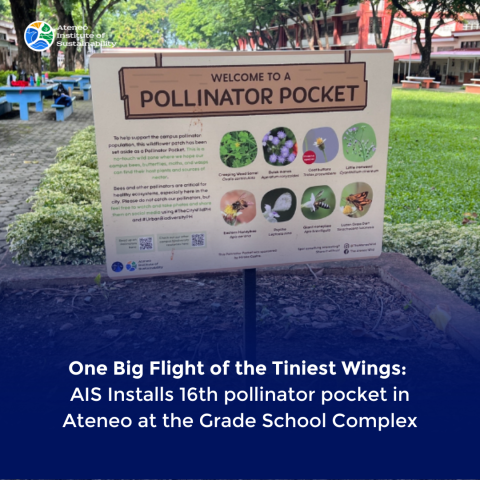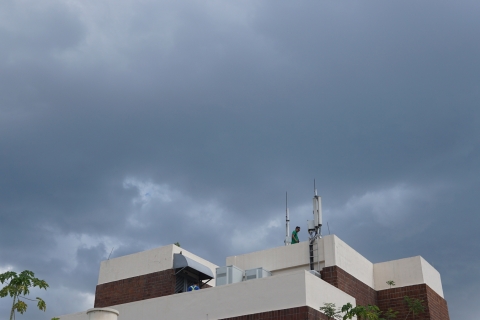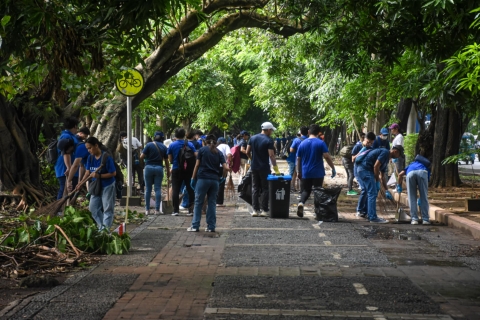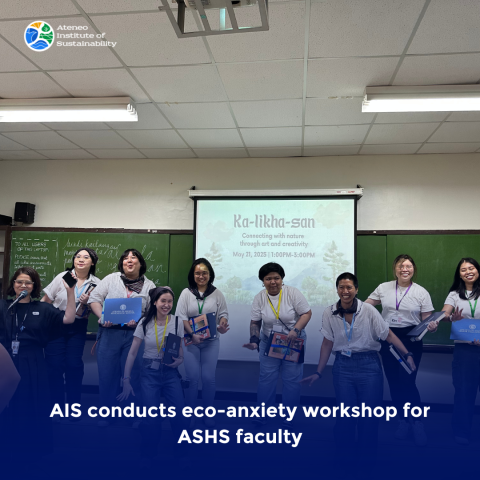Women’s human rights focus of Climate Research webinar
24 Jun 2024 | Diana Reyes and Ivy Geraldine Ferrer
On 03 May 2024, the My Climate Risk – Ateneo de Manila University (MCR-Ateneo) Regional Hub, which is hosted by the Ateneo Institute of Sustainability, organized a webinar titled “Gendering Climate Change Impacts: Placing Women’s Human Rights at the Forefront.” My Climate Risk is a lighthouse activity of the World Climate Research Programme, which aims to develop and mainstream a bottom-up approach to regional climate risk, and has a mycorrhizal network of hubs that span all continents except Antarctica.
The webinar featured Atty Ryan Jeremiah Donato Quan, a full-time human rights and labor law professor and Coordinator of the Graduate Legal Studies Institute at the Ateneo de Manila University School of Law, as resource speaker. He drew on his knowledge from research, data gathering, and experiences garnered from personal work to show the disproportionate impacts of climate change through a human rights and gender perspective.
Dr Nikki Carsi Cruz, Chair of the Department of Interdisciplinary Studies of Ateneo de Manila University and a Collaborator of the Hub, delivered the Opening Remarks. She highlighted how climate change affects people differently and disproportionately, as it worsens existing gender inequalities and heightens women’s vulnerabilities. She further stressed the importance of viewing climate impacts through a gender lens and noted that human rights are a good starting point in addressing inequalities, ensuring fair treatment, and supporting women’s participation in decision making, ultimately empowering them as agents of change. Ms Aina B Martin, Hub Companion at the University Gender Hub and Senior High School Gender Hub Representative at Ateneo de Manila University, delivered the Closing Remarks. She asserted that climate change is not gender neutral, and expressed hope in continued dialogue that includes and engages women in working towards climate justice. Mr Daniel C Ratilla, Program Officer for Climate and Disaster Resilience at the Ateneo Institute of Sustainability, served as the session’s moderator.
Opening the plenary, Atty Quan discussed climate change as an issue requiring examination not limited to the realm of scientific analysis, but also that of human rights and gender. He mentioned that the UN Human Rights Council acknowledged how climate change is intricately linked to human rights, impacting livelihoods, the environment, and crucially, our daily lives. Furthermore, impacts of climate change such as extreme weather events, rising temperatures, and changing ecosystems directly compromise the four fundamental rights to food, security, water, and health.
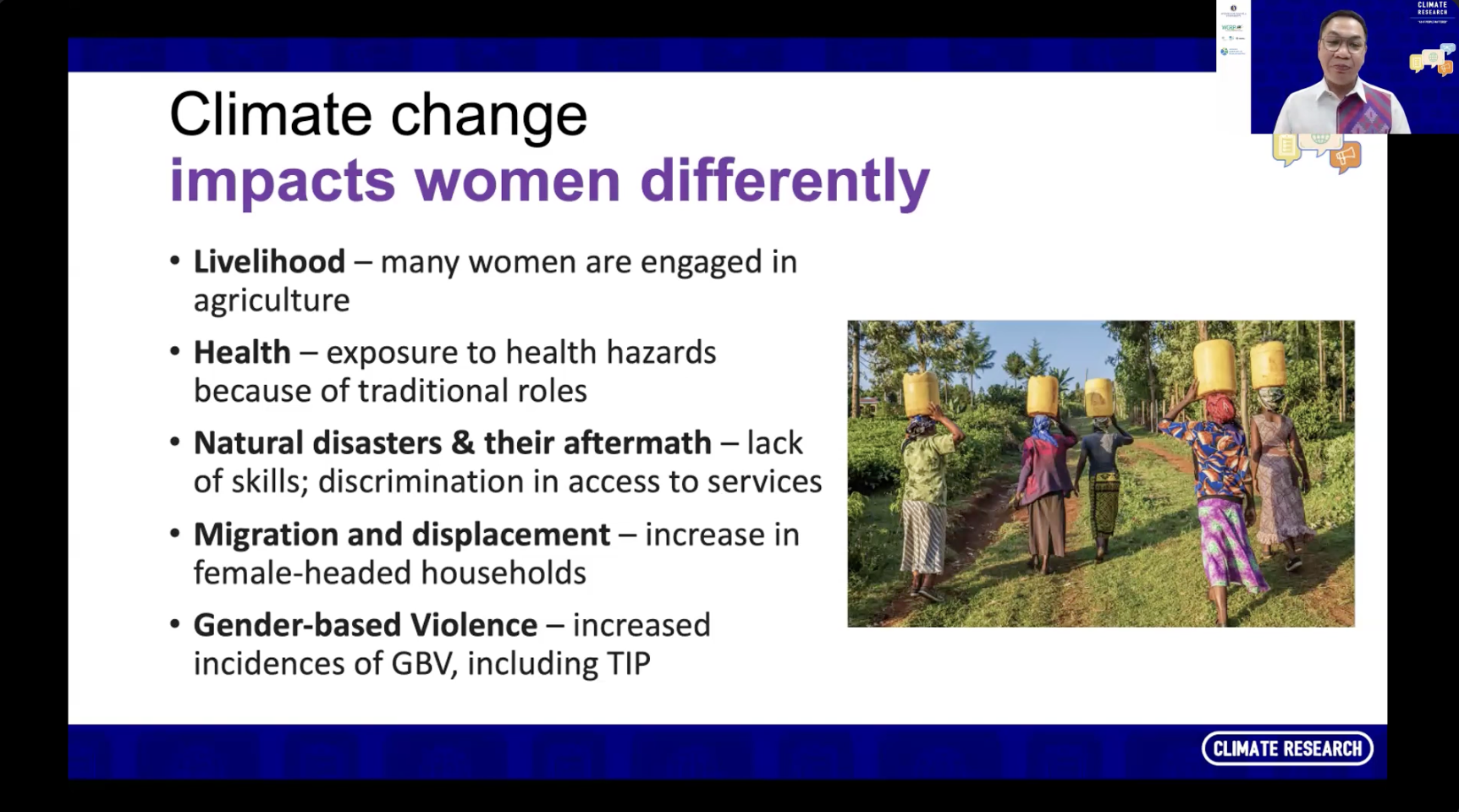
Atty Quan shared that among those affected, women are particularly vulnerable due to entrenched gender roles and societal constructs that hinder them from adapting to environmental change. For instance, with regards to livelihood, women are often employed in agriculture, with crop yields and fisheries negatively impacted by unpredictable weather patterns. The inability to meet subsistence quotas compels women to seek alternative livelihoods, but this is made more difficult by barriers such as limited education. Similarly, gender roles expose women to health hazards in the absence of proper planning and infrastructure, such as in the instance of water collection. Disasters amplify these inequalities and vulnerabilities, and in their aftermath, expose women to inadequate evacuation center facilities and heightened risks of gender-based violence.
Atty Quan then identified common women’s rights violations related to the previously-shared climate change impacts, which included discrimination in education and health, stereotyping in gender roles, and lack of public participation. On this note, Atty Quan introduced the concept of a human rights-based approach in tackling climate change impacts, especially to women.
On the subject of gender mainstreaming, Atty Quan discussed its significance in policy design and implementation, as it upholds the principles of human rights, takes into consideration insights and experiences of both men and women, and ultimately sets the foundation for climate action that recognizes the dignity and agency of all.
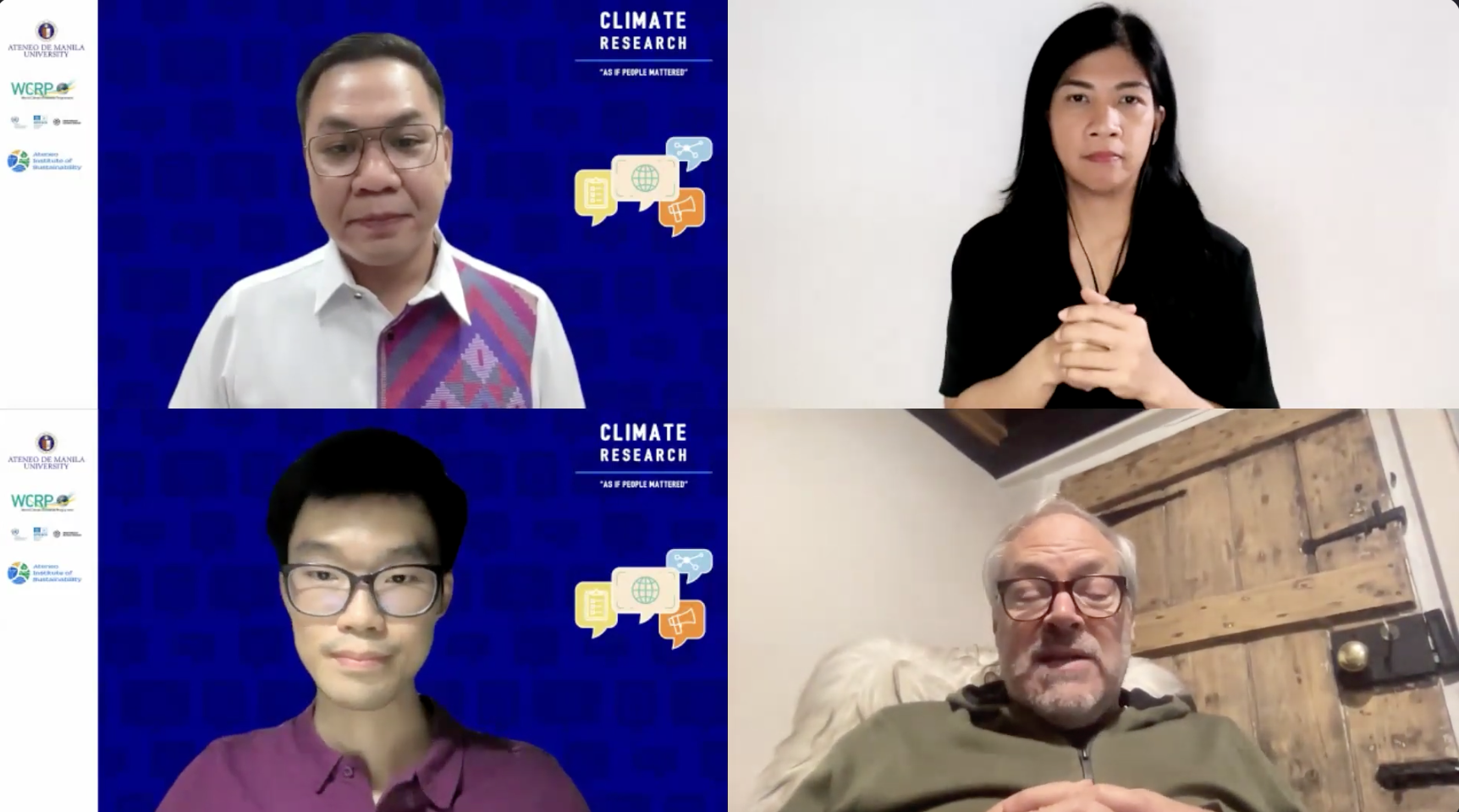
Key takeaways from Atty Quan’s presentation highlighted the overlap between climate change impacts and gender, stressing the need for contextualized responses to climate-related issues and reconciliation of inequalities to ensure the implementation of equitable adaptation and mitigation strategies. Hence, women’s empowerment is crucial for sustainable climate action.
Atty Quan ended the presentation with a quote by Mary Robinson, former President of Ireland and former UN Secretary-General’s Special Envoy on Climate Change, asserting that climate change “is the language and issues of women” – a call to action to safeguard the rights and dignity of all individuals regardless of their gender. He concluded his talk by reflecting that society has a collective responsibility to pursue human rights and gender equality, demanding the engagement of all its members.
The session was attended by participants from the Philippines, with international attendees from India, the United Kingdom, Belgium, Botswana, Germany, Malaysia, Morocco, Nigeria, Rwanda, Sweden, and Switzerland. This webinar is the second session in the 2024 iteration of “Climate Research ‘As If People Mattered’,” the name of which comes from the article “Small is beautiful: climate change science as if people mattered,” written by Dr Regina R Rodrigues and Dr Theodore Shepherd. The series occurred from April to May 2024. Replays and highlights of the webinar series are available in the following page.




